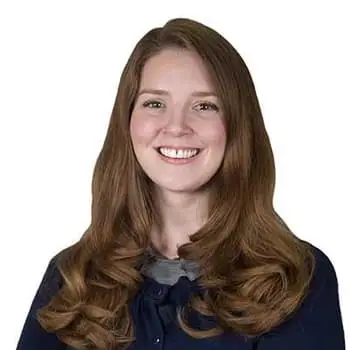Although they are meant to improve brain function, nootropics can sometimes instead worsen it.
The world is a stressful and busy place, and people are under pressure to perform to a high level at work or school. It can be hard to get everything done. Some people are interested in trying brain-boosting agents called nootropics to help with pressure, stress, and focus. In fact, over the past several years, there has been an increase in the number of prescribed nootropic drugs. However, the downside to some nootropics includes harmful side effects or even addiction.
What Are Nootropics?
Nootropics, or cognitive enhancers, are substances that people take to improve areas of brain function. Nootropics can include both prescription medications, over-the-counter supplements, and even illicit drugs. Nootropics are used to improve cognitive functions like:
- Memory
- Concentration
- Attention
- Planning
- Inhibition
- Creativity
Are Nootropics Safe?
Because many kinds of nootropics exist, it is hard to paint their overall safety with a broad brush. Some nootropic supplements, like guarana, are generally safe. Other supplements, like gingko biloba, may be safe for most people but can lead to sudden bleeding in others. However, other nootropics can cause harm, including the risk of dependence and addiction. This includes many prescription nootropics as well as illicit nootropics.
Types of Addictive Nootropics
Some nootropics have the potential for addiction or dependence. This is especially true because, by definition, they impact brain function. Since certain nootropics are widely used, it is important to know about their risks and benefits.
Treatment Can Be Life Changing. Reach out today.

Caffeine
Caffeine is one of the most commonly used nootropics in the world and is legal worldwide. The substance is most linked to drinks like coffee and soda, although it can be found in other foods as well. Although physical dependence on caffeine is common, with people feeling foggy-minded or getting headaches if they skip their morning coffee, it is thought to have low abuse potential. Caffeine has been widely studied and was found to help memory in some cognitive tests.
Psychedelics
For decades, people have taken the psychedelic medication lysergic acid diethylamide, or LSD, to try to boost creativity. The list of famous people who used LSD for creativity includes Steve Jobs, Bob Dylan, Jimi Hendrix, and The Beatles. However, LSD is a Schedule I controlled substance, meaning that it is an illicit drug with no recognized medical use in the United States. It has high abuse potential and can cause unpredictable hallucinations and flashbacks.
Regardless, over the past few years, some researchers have started to investigate the microdosing of psychotropics. Microdosing means taking a much smaller dose than normal. Although at least one initial study of psychedelic microdosing showed it might be used as a nootropic, even the study’s authors admitted that much more research is needed.
Prescription Stimulants
Addictive prescription stimulants have a long history of use as nootropic drugs. Amphetamine was used as a study aid for college students as early as the 1930s and was used to keep American troops alert, focused and confident during World War II. Amphetamine is still used to this day by pilots in the United States military. However, many prescription stimulants are highly addictive and have been linked to health problems like heart attacks. Further, studies have shown that people who become dependent on stimulants have a higher risk of cognitive problems.
Today these drugs are generally reserved for people with attention-deficit hyperactivity disorder or ADHD. When closely monitored and used at appropriate doses, they can help improve concentration and memory in people who suffer from ADHD. However, because a high risk of abuse exists with many prescription stimulants, they are often Schedule II controlled substances. Such drugs include:
Illicit Stimulants
Illicit drugs like cocaine are also sometimes used as nootropics. Cocaine was often used for this purpose in the 19th century, including by Sigmund Freud, who believed it increased his mental faculties. Coca-Cola used to contain cocaine and was advertised as a “brain tonic” for this reason. However, studies have shown that cognition is often impaired following cocaine use. Cocaine is linked to memory and attention problems. Further, cocaine is a highly addictive illicit drug.
Modafinil
Modafinil, also known by its brand name Provigil, is a prescription stimulant that can be used for certain sleep problems. Doctors think it has less abuse risk than other stimulants. For this reason, it is a Schedule IV controlled substance. Modafinil has been studied both in healthy people and in those who suffer from sleep disturbances. Among healthy people, modafinil was found to be helpful in studies that looked at specific tasks like pattern recognition. However, modafinil was not helpful in broader measures of brain performance, like long-term memory. In general, the people who got the most improvement from modafinil in studies had cognition problems before taking the drug.
Efficacy Of Nootropics
Although some nootropics have shown some benefit for cognition, as with all substances, it is important to weigh the risk versus the benefit with your doctor. Because they are substances that impact the brain, nootropics can be dangerous to take. Further, some nootropics are illegal or have drug interactions that can be harmful. It is possible to boost cognition without taking substances. Cognitive function can be boosted naturally by behaviors like:
It can be very hard to quit addictive nootropic drugs on your own. If you or a loved one have struggled to stop using nootropic drugs, help is available. The staff at The Recovery Village Palm Beach at Baptist Health can help you access tools and resources to lead a substance-free life. Contact The Recovery Village Palm Beach at Baptist Health today to learn more about evidence-based treatment options.











